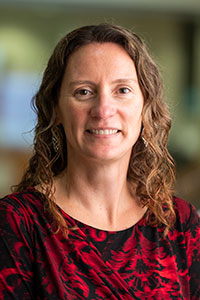
Jason Cantor was recently granted a prestigious award from the American Cancer Society to continue his investigation into conditionally essential genes in human cancer cells. Utilizing CRISPR, a revolutionary DNA-editing technology, Cantor and his team will make large-scale screens to possibly identify what genes are essential for the survival and growth of human cells.
“Many thanks to the American Cancer Society for supporting our work that will investigate conditionally essential genes in human cancer cells – it is truly an honor for me to once again be part of the ACS family,” Cantor says. “We are very much looking forward to making many impactful contributions to the fight against cancer and to sharing our work and goals with the local community for many years to come!”
Cantor’s work has the potential to contribute to cancer therapies, as the proteins encoded by each gene could be promising drug targets in certain cancers.

Kevin Eliceiri was awarded a five-year, $6.7 million grant from the National Cancer Institute to lead the Center for Multiparametric Imaging of Tumor Immune Microenvironments. Eliceiri will work alongside University of Minnesota Professor Paolo Provenzano to create new immunotherapy designs and strategies by developing, testing and deploying an integrated toolkit of imaging and data analysis technologies.
“This new NIH-funded collaborative cancer research center will utilize advanced imaging and computational approaches to investigate the physical and chemical influences on antitumor immune response and immunotherapies,” Eliceiri says. “It is an exciting opportunity to advance cancer treatment strategies by leveraging complementary experience in imaging and tumor models between researchers at Morgridge and the University of Wisconsin–Madison with our co-investigators at the University of Minnesota.”
Morgridge Investigator Melissa Skala will work alongside Eliceiri in the UW–Madison group.

Melissa Skala was awarded a grant from the National Eye Institute to develop a new imaging method for quantifying melanin in the human eye. With this two-year, $480,135 grant, Skala and her team will develop a technique called photothermal optical coherence tomography. This technique hopes to create quantitative 3D images of melanin concentration in living retinal tissues.
“This project will test new imaging technologies to monitor melanin levels in the eye, which could provide early detection of retinal diseases that lead to blindness,” says Skala. “The grant includes the first in human studies for safety and accuracy.”
Skala, also the Retina Research Foundation Daniel M. Albert Chair at UW–Madison’s McPherson Eye Research Institute, will work in collaboration with Joseph Carroll, director of the Advanced Ocular Imaging Program at the Medical College of Wisconsin.
